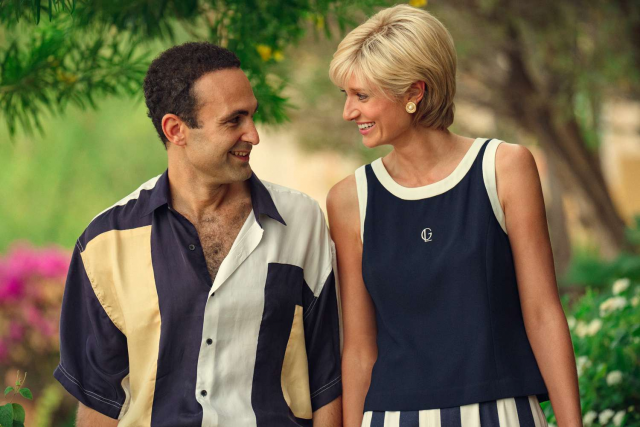End of an era: 'The Crown' concludes with Diana's death
Netflix's acclaimed series draws to a close, focusing on the subject still highly sensitive - the death of princess

Netflix's acclaimed series The Crown chronicling the reign of Queen Elizabeth II, draws to a close, focusing on a subject still highly sensitive to the British monarchy - the death of Princess Diana. The sixth and final season of the award-winning but often-criticised show created by Peter Morgan is being released in two parts.
The first five episodes premiered on Friday, followed by the final five on December 14, culminating in 60 hours of narrative that began in 2016. The drama covers the late queen's journey from her 1947 marriage to Philip up to the early 2000s introduction of Kate Middleton, the current Princess of Wales.
This season depicts the final weeks of Princess Diana's life, following her tumultuous divorce from the now King Charles III, leading up to her tragic demise on August 31, 1997. Pursued by paparazzi, the BMW carrying Diana and her lover Dodi Al-Fayed crashed at high speed into a pillar in Paris's Alma tunnel, killing her, Fayed and driver Henri Paul.
The royal family took years to recover after criticism of their reaction to the loss of Diana, whom Tony Blair famously dubbed "the people's princess". "It's a very sensitive subject because it was such a significant event in the life of the monarchy and the royal family, and because people related to Diana are still very much alive, most notably her now-adult sons William and Harry," royal historian Ed Owens told AFP.
"It's the seminal moment that the series has been building up to since series one. The question remains whether Peter Morgan is a friend or an enemy of the monarchy. This series will give us a fuller understanding of whether he thinks it is an institution that has made big mistakes and which needs to modernise. Or whether it's an institution that has managed to modernise successfully since 1997."
Massive responsibility
The final season notably recreates Queen Elizabeth's rare live televised address from Buckingham Palace on September 5, 1997, paying tribute to Diana and addressing the widespread public grief. Imelda Staunton, who portrays the monarch in the last two seasons following Claire Foy and Olivia Colman, expressed feeling "a massive responsibility" with this scene.
"It was an incredibly powerful address to the nation which many people remember," the actor said. "The significance of that was not taken lightly by anyone involved, and I spent a lot of time listening to recordings of the real speech, as I needed to be as accurate as I could be with the extremely sensitive subject matter."
A media figure and celebrity friend, Diana gained global popularity by displaying empathy towards the less fortunate. She remains a figure of immense admiration beyond the UK, casting a shadow over the image of Charles and his wife Queen Camilla, who has struggled to fully overcome her reputation as a marriage wrecker.
The season is nervously anticipated by those close to royalty - the family itself has never commented on the series - while early revelations about Lady Di's portrayal as a ghost have already sparked accusations of disrespect.
This isn't the first time The Crown has faced criticism, especially as it appeals to Netflix's younger audience who are learning about some events for the first time. Over the seasons, it has been accused of suggesting infidelities by the queen and Prince Philip, portraying the current king as an unfaithful husband and even suggesting Charles's desire for his mother's abdication in the 1990s.
Last year, Netflix added a disclaimer clarifying the show was a work of fiction. Annie Sulzberger, who led the documentary research for the series, acknowledged the sensitivity surrounding Diana in an interview with The New York Times. "People who lived through Diana's death feel a sense of ownership over that history, a sense of participation, which can colour their perception of it," she said. "With recent history, you're constantly battling with people's intimate and personal perspectives."
Have something to add to the story? Share it in the comments below.



















COMMENTS
Comments are moderated and generally will be posted if they are on-topic and not abusive.
For more information, please see our Comments FAQ